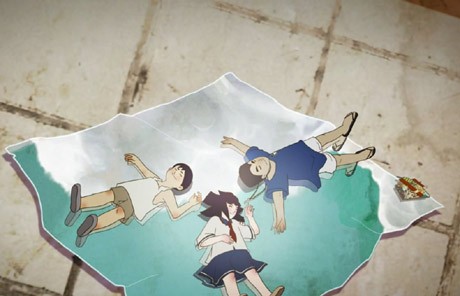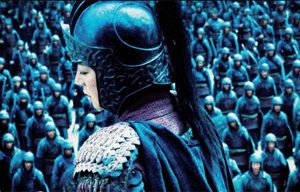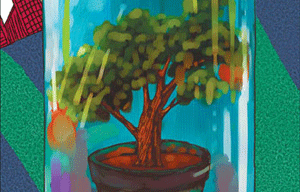Death of Gadhafi ushers new era in Libya
Updated: 2011-10-22 07:34
(China Daily)
|
|||||||||
BEIJING - With the death of ousted Libyan leader Muammar Gadhafi on Thursday, the country's new leaders are facing the challenge of rebuilding a war-torn nation.
Analysts said scars left by Gadhafi's rule and its divided domestic forces, combined with the role the West will play, will complicate the post-war period.
China on Friday called for the rapid launch of an inclusive political process and economic reconstruction in the country.
A statement from Foreign Ministry spokeswoman Jiang Yu on Friday urged national unity and the restoration of social stability in Libya, but it did not directly comment on Gadhafi's death, in keeping with China's neutral stance in the months-long conflict.
"We have noted the relevant reports. At present, a new page has been turned in the history of Libya," Jiang said.
"We hope Libya will rapidly embark on an inclusive political process, maintain ethnic solidarity and national unity, swiftly establish social stability, begin economic reconstruction, and allow the people to live in peace and happiness," she said.
French President Nicolas Sarkozy on Friday called for forgiveness and reconciliation in Libya, adding that despite Gadhafi's crimes his death is not cause for celebration.
Libya has found "its freedom and democratic hope ... Now it is up to the Libyans to turn the page on the terrible years of Gadhafi and to build this future. The Libyans have a duty of forgiveness, reconciliation and unity," Sarkozy was quoted by AFP as saying.
NATO nations, which have been conducting air strikes and maintaining an arms embargo with naval patrols on Libya since March 31, are expected to phase out the mission, alliance officials and diplomats said.
Yet analysts warned it is not easy to stitch the war-torn country together, and the process, marked by more tribal conflict, might last longer than the eight-month civil war.
The war, which started with a revolt in parts of the country in mid February and was bolstered by NATO air strikes a month later, has led to the deaths of more than 25,000 people. More than one-fifth of Libya's 6.5 million people have sought protection in neighboring countries.
The war has also destroyed the infrastructure and public services of the country, which became Africa's richest country in the 1980s.
As it turns its focus from war to the buildup of a constitution-led country, the nation needs a unified force that can install stability and economic management, said experts.
Tarak Barkawi, senior lecturer in the Centre of International Studies, University of Cambridge, said in an opinion piece carried by Al Jazeera on Friday that the death of Gadhafi does not change the fact that the ruling National Transitional Council (NTC) has been unable to secure a country awash with armed men rife with rivalries, jealousies and blood debts.
"Like Iraq, Libya was assembled through histories of empire and its aftermath. It has been torn apart by war. Now it has lost the one thing that united much of the country: Hatred of Colonel Gadhafi and his regime. Libyans are left to face the legacy of his mastery of the art of divide and rule," said Barkawi.
Rebel bands will make experienced cadres for their home militias. There are many scores to settle, competing visions of the future, and the possibility of resorting to arms if the process does not pan out for local interests, Barkawi said.
Exclusive Analysis, a specialist intelligence company that forecasts commercially relevant political and violent risks worldwide, noted that there is a low but increasing risk that Libya will split, raising risks of collateral damage to oil assets and contract revisions.
A key indicator will be acceptance of the authority of the National Oil Company over regional state-owned or partly state-owned firms, Exclusive Analysis said.
Some European experts also said that reconstruction efforts will be tough.
"Libya is finally making a transition from war to creating a new constitution," Stefan Wolff, professor of International Security at the University of Birmingham, told China Daily.
It is time for the NTC to fulfill the promises it made about setting up democratic elections and building a proper constitution, Wolff said, but it also faces challenges of internal divisions. "This is a double-edged sword," he noted, adding that once elections take place, some will stay in government, while others will not.
In fact, the division within the NTC is geographical. South Libya has a lot of tribes, and had great contributions to the military success of the NTC. There is also animosity between the East and West, and many sub-groups.
Wolff said there are economic constraints, and the NTC must make sure that they export goods and services to create wealth and make sure that the Libyan people are better off in the longer term.
Experts agreed that to achieve transition without civil war requires a lot of help from the international community.
David Abrahams, an expert of the Royal United Services Institute think tank, also noted the reconstruction period depends on how much investment is put into the process.
But, Abrahams added: "Libya will receive money from the international community in aid and in investments. The Western world is not in good economic situation, and there are a lot of other countries competing with Libya for international aid."
Yin Gang, an expert on Middle East studies at the Chinese Academy of Social Sciences said that the West might keep a role in post-war Libya, as it is concerned with the political proceedings in the country.
Yin suggested that China can play an important role in helping the economic reconstruction of Libya.
China Daily-Reuters-AFP








